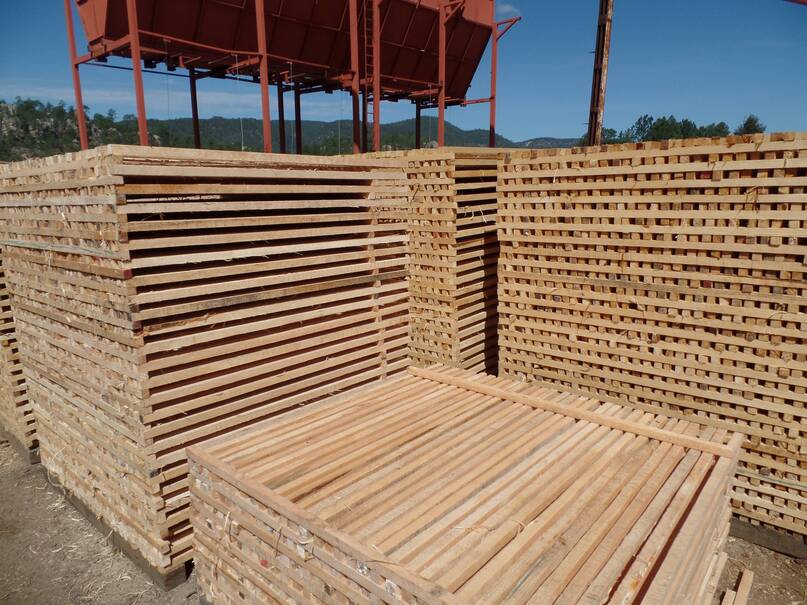Timber enterprises seek improvements amid continued downturn in international markets
20 August 2024

Piles of sanwood at a mill in Mexico. Photo: CONAFOR
20 August 2024: The overall performance of international timber markets in July was still relatively sluggish. Amid the continued downturn, enterprises in many countries explored ways to survive and grow, according to the latest edition of the Global Timber Index (GTI) Report, released today.
The ITTO-supported GTI tracks the timber sectors in nine pilot countries around the world, with Ghana joining in July and other countries likely to follow soon.
GTI values were below the threshold of 50% in July 2024 in all participating countries, indicating overall declines in their timber sectors. The three best-performing countries (although still declining) were Thailand (48.4%), the Congo (48.1%) and Ghana (46.8%), followed by Indonesia and Gabon (both 46.4%), China (43.5%), Brazil (39.2%), Mexico (37.0%) and Malaysia (25.7%).
Despite the overall weaker performance, timber production and trade showed positive signs in some countries. In Indonesia and Gabon, the volume of harvesting increased compared with the previous month; existing orders in Thailand’s timber sector continued to rise; the Congo’s production and new orders held steady; and, in Malaysia and Mexico, the downward trend in export orders eased.
In other news, the GTI-Producers Index, a specialized index for timber production, was at 41.2% in July, and the GTI-WBP Index, a specialized index for wood-based panels, stood at 42.0%, indicating that those subsectors continued to decline.
In the face of pressures from production and operations, GTI-participating enterprises put forward various suggestions for tackling challenges in their countries. For example, Malaysian enterprises expressed hope of government assistance to ease port congestion; Mexican enterprises suggested that the government could impose tariffs on imported products to reduce their impact on domestic products; Ghanaian enterprises wanted the government to introduce policies to ensure the supply of raw materials; Gabonese enterprises proposed that the railway operator SETRAG provide more carriages to certain forestry companies that have concessions; and Chinese enterprises looked to increase the proportion of exports and shift from the domestic market to the Southeast Asian market. In Indonesia, enterprises sought incentives for sustainable forest management-certified and legality-verified wood products. Moreover, in the face of low prices for logs from natural forests and given that not all these logs were being absorbed by the domestic wood-processing industry, enterprises wanted to ramp up efforts to expand the market.
In other news in July reported in the GTI Report, the 27th Session of the Committee on Forestry was held at FAO headquarters in Rome, where, among other things, FAO released The State of the World’s Forests 2024 – Forest-sector innovations towards a more sustainable future. The report says global wood production is at record levels, at about 4 billion m3 per year.
The 26th World Congress of the International Union of Forest Research Organizations (IUFRO) was held in Stockholm, Sweden, with a focus on the theme of “forests and society towards 2050”. The statement released at the Congress urged forestry practitioners to make best use of the knowledge held by the global science community with a view to strengthening forest resilience and climate-change adaptation and maintaining and enhancing the social values of forests for sustainable societies.
The monthly GTI Report, GTI-Producers Report and GTI-WBP Report are available free at www.itto.int/gti
Download the latest GTI Report, GTI-Producers Report and GTI-WBP Report